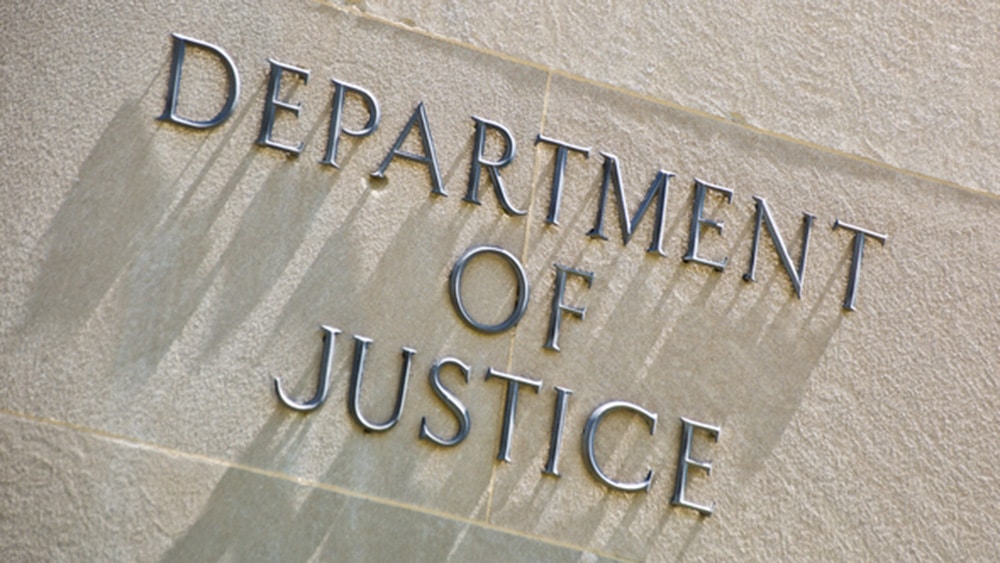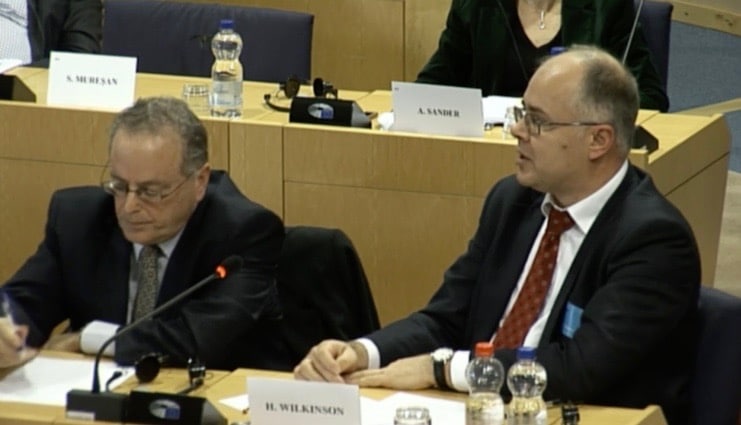Updated
June 6, 2025

Whistleblowing is the act wherein individuals, often termed “whistleblowers,” disclose wrongdoings, illegalities, or unethical practices they’ve either witnessed firsthand or come to know of within an organization.
At its core, it’s about highlighting malpractices and ensuring that the truth sees the light of day. It doesn’t matter if you refer to it as “whistle blower,” “wistle blower,” or “whisle blower”; the central theme is someone taking a courageous step forward.
The modern legal framework has evolved to not only support whistleblowers but also incentivize them. Current whistleblower laws allow individuals to file claims and potentially receive a portion of the proceeds that the government recovers from the exposed fraud. These U.S. laws include the Dodd-Frank Act, the Foreign Corrupt Practices Act, Commodity Exchange Act, qui tam, and IRS tax law.
Continue reading to get a broader definition of a whistleblower, and how insiders can come forward to expose fraud and corruption.
Types of Whistleblowers
Both corporate and government employees can qualify as whistleblowers, as well as those doing business with such entities. The spectrum is vast, from professionals on Wall Street revealing white-collar crimes to deckhands on fishing vessels exposing illicit fishing methods. What’s paramount is that the information they present is both original and complies with the legal prerequisites for whistleblowing, which varies depending on the law or program.
- Corporate/Business Whistleblowers expose fraud, safety violations, environmental crimes, accounting irregularities, or other misconduct within private companies. Famous examples include cases at Enron, Wells Fargo, and various pharmaceutical companies.
- Government Whistleblowers reveal misconduct within public agencies, from local municipal corruption to federal intelligence operations. This includes military whistleblowers exposing war crimes or classified program abuses, and civil servants reporting waste, fraud, or constitutional violations.
- Healthcare Whistleblowers report medical malpractice, insurance fraud, unsafe practices, illegal billing schemes, or drug safety cover-ups. This includes nurses, doctors, and administrative staff in hospitals, clinics, and healthcare organizations.
- Financial Sector Whistleblowers expose banking fraud, securities violations, money laundering, or market manipulation. They often work within banks, investment firms, or regulatory agencies.
- Technology Whistleblowers reveal privacy violations, surveillance abuses, cybersecurity failures, or unethical AI practices within tech companies or government surveillance programs.
- Environmental Whistleblowers report illegal pollution, cover-ups of environmental hazards, or violations of environmental regulations. These often come from within corporations, government agencies like the EPA, or research institutions.
The common thread is individuals with inside access who risk their careers and personal safety to expose wrongdoing that serves the public interest.
Whistleblower Case Examples
1. Sherron Watkins: The Enron Whistleblower Who Transformed Corporate Governance
Former Enron Vice President Sherron Watkins became one of America’s most famous corporate whistleblowers when she exposed the accounting fraud that led to Enron’s 2001 collapse.
Her memo to CEO Kenneth Lay warning of “an elaborate accounting hoax” triggered investigations into what became the largest corporate scandal in U.S. history.
Key Impact: Watkins’ whistleblowing directly influenced the creation of the Sarbanes-Oxley Act of 2002, revolutionizing corporate accountability standards and financial reporting requirements for all public companies.
2. Bradley Birkenfeld: The UBS Whistleblower Who Cracked Swiss Bank Secrecy
Bradley Birkenfeld, a former UBS banker, made history in 2007 by exposing how the Swiss banking giant helped wealthy Americans evade billions in taxes through secret offshore accounts. His detailed disclosures to the DOJ, SEC, and IRS shattered the legendary secrecy of Swiss banking.
Record-Breaking Results:
- UBS paid a landmark $780 million fine
- Thousands of tax evaders were exposed
- Birkenfeld received a record $104 million IRS whistleblower award
- His actions recovered billions in unpaid taxes for the U.S. government
3. W. Mark Felt (“Deep Throat”): The FBI Insider Who Exposed Watergate
For over 30 years, “Deep Throat” remained Washington’s greatest mystery. In 2005, former FBI Associate Director W. Mark Felt revealed he was the legendary source who guided Washington Post reporters Woodward and Bernstein through the Watergate investigation.
Historic Impact: Felt’s strategic leaks about Nixon administration crimes led directly to President Nixon’s resignation in 1974, proving that no one is above the law.
4. Dr. Frances Oldham Kelsey: The FDA Hero Who Prevented a National Tragedy
Dr. Frances Oldham Kelsey, an FDA physician-pharmacologist, single-handedly prevented a public health catastrophe in the 1960s by refusing to approve thalidomide for the U.S. market. Despite intense pharmaceutical industry pressure, she demanded proof of the drug’s safety for pregnant women.
Life-Saving Decision: Her stance prevented thousands of birth defects after thalidomide was proven to cause severe fetal abnormalities worldwide. Her actions led to revolutionary FDA drug approval reforms requiring comprehensive safety testing.
5. Healthcare Whistleblower Case Study: Dr. Jeffrey Wigand – The Tobacco Industry Insider Who Saved Millions
Dr. Jeffrey Wigand, former Vice President of R&D at Brown & Williamson Tobacco, risked everything in the 1990s to expose how Big Tobacco deliberately manipulated nicotine levels to maximize addiction while lying to Congress about health risks. Despite death threats, lawsuits, and financial ruin, he revealed the industry’s deadly deception on national television.
Public Health Victory: His courageous whistleblowing led to:
- $246 billion Master Settlement Agreement – largest civil settlement in U.S. history
- 8 million lives saved through dramatic smoking reduction
- Revolutionary FDA tobacco regulations and advertising bans
- 70% decrease in youth smoking since his revelations
Whistleblower Protection Laws
Overview of Key Whistleblower Laws and Programs
The U.S boasts over 50 distinct whistleblower laws, each catering to specific sectors and concerns. Most of these laws incorporate provisions against retaliation, protecting whistleblowers from unjust terminations, harassment, and other punitive actions. Overall, whistleblowing works – so much that authorities provide compensation in the form of rewards and protection for those who bring them original, credible, and timely information.
The False Claims Act and Qui Tam
The False Claims Act stands out as one of the oldest and most influential whistleblower laws, safeguarding both federal and private employees. It encourages “qui tam relators” with knowledge of frauds to step forward by filing a qui tam lawsuit, rewarding them, even if they were part of the misconduct initially. Also note: most states have enacted their own state False Claims Act laws.
Financial Crimes Enforcement Network (FinCEN) AML and Sanctions Whistleblower Program
The FinCEN Anti-Money Laundering and Whistleblower Program mandates a minimum reward of 10% of the collected sanctions, ensuring significant compensation for valuable information. Its jurisdiction also encompasses violations of the International Emergency Economic Powers Act, sections 5 and 12 of the Trading With the Enemy Act, and the Foreign Narcotics Kingpin Designation Act, making it a comprehensive tool for holding violators accountable across various financial misconduct domains.
Securities and Exchange Commission (SEC) Whistleblower Program
The SEC Whistleblower Program, established as part of the Dodd-Frank Wall Street Reform and Consumer Protection Act, protects and rewards individuals who come forward with information about securities law violations. Those who provide high-quality, original information leading to an enforcement action where over $1 million in sanctions is ordered can receive between 10% and 30% of the money collected.
The Commodity Future Trading Commission (CFTC) Whistleblower Program
The CFTC Whistleblower Program encourages individuals with knowledge of violations of the Commodity Exchange Act to report to the Commission. Similar to the SEC program, whistleblowers can earn financial rewards if their information results in a successful enforcement action with sanctions exceeding $1 million, earning between 10% and 30% of the collected amount.
The Internal Revenue Service (IRS) Whistleblower Program
The IRS Whistleblower Program incentivizes individuals to disclose substantial underpayments of taxes or fraudulent tax activities. Depending on the case’s specifics and the quality of the information provided, whistleblowers can receive between 15% and 30% of the collected proceeds if the taxes, penalties, interest, and other amounts in dispute exceed $2 million.
Note: to be eligible for a whistleblower reward under most of these laws, the disclosures must constitute original information. The landscape is vast, with numerous federal and state laws providing different levels of protection, depending on the nature of the disclosure and the whistleblower’s status.
Awards and Protections of These Laws
| Law or Program | Awards Offered | Protections |
|---|---|---|
| The False Claims Act and Qui Tam | "Qui tam relators" can receive 15-30% of the government's recovery if the government intervenes. If the relator pursues the case without government intervention, the award can be 25-50%. Many states have similar False Claims Act laws. | Protects federal and private employees. Lawsuits are initially filed under seal to protect the whistleblower's identity. Provides strong anti-retaliation provisions against actions like discharge, demotion, suspension, threats, or harassment. Remedies for retaliation can include reinstatement, double back pay, and special damages. |
| Financial Crimes Enforcement Network (FinCEN) AML and Sanctions Whistleblower Program | Mandates a minimum award of 10% (up to 30%) of collected sanctions if they exceed $1 million. Covers violations of the Bank Secrecy Act, International Emergency Economic Powers Act, Trading With the Enemy Act, and Foreign Narcotics Kingpin Designation Act. | Offers confidentiality and allows for anonymous reporting if represented by an attorney. Provides strong anti-retaliation protections, prohibiting employers from various adverse actions. Whistleblowers who suffer retaliation can seek remedies including reinstatement, double back pay with interest, and other compensatory damages. |
| Securities and Exchange Commission (SEC) Whistleblower Program | Individuals providing high-quality, original information leading to an enforcement action with over $1 million in sanctions can receive 10-30% of the money collected. | Established under the Dodd-Frank Act, this program provides for whistleblower confidentiality and allows anonymous reporting through legal counsel. It includes strong anti-retaliation provisions, protecting employees from adverse actions for reporting securities law violations. Remedies can include reinstatement, back pay, and other damages. |
| The Commodity Future Trading Commission (CFTC) Whistleblower Program | Similar to the SEC program, whistleblowers can earn 10-30% of the collected amount if their information results in a successful enforcement action with sanctions exceeding $1 million for violations of the Commodity Exchange Act. | Provides for the confidentiality of the whistleblower's identity and permits anonymous submissions through an attorney. Includes robust anti-retaliation provisions, shielding whistleblowers from employer retaliation. Remedies for retaliation can include legal action for reinstatement, back pay, and other compensatory damages. |
| The Internal Revenue Service (IRS) Whistleblower Program | Whistleblowers can receive 15-30% of the collected proceeds (taxes, penalties, interest) if the amount in dispute exceeds $2 million. For smaller cases, a discretionary award of up to 15% might be available. | Provides for the confidentiality of the whistleblower's identity (though not fully anonymous submissions). Offers protection against employer retaliation (e.g., termination, demotion). Whistleblowers experiencing retaliation can file a complaint and may be entitled to remedies like reinstatement, back pay, and compensation for other damages. |
The Whistleblowing Process: An Overview
The paths whistleblowers can pursue when reporting wrongdoings vary. While many organizations have internal whistleblower offices, it’s essential for the whistleblower to be aware of their rights and potential repercussions. Below is a generalized overview of the process with things to remember:
1. Discovery and Initial Documentation
The whistleblowing process begins when someone discovers serious wrongdoing within their organization—whether fraud, safety violations, or illegal activities. Before taking action, it’s crucial to verify that concerns are based on solid evidence and to begin carefully documenting everything. This means saving emails, memos, and communications while recording specific dates, times, and participants involved. Creating secure backups of all evidence is essential, as this documentation will form the foundation of any future complaint.
2. Internal Reporting: The Recommended First Step
Our experts advise to report internally first before going to outside authorities, as this demonstrates good faith and may resolve issues without external intervention. Companies typically offer several reporting channels: supervisors, compliance departments, ethics hotlines, or even boards of directors for executive misconduct. Throughout this process, maintain detailed records of all reports filed, responses received, and any signs of organizational inaction or retaliation.
Legal Protection and External Reporting
Before proceeding externally, consulting with a whistleblower attorney is crucial. These experts can navigate the complex web of federal protections—including the False Claims Act, Dodd-Frank Act, and Sarbanes-Oxley Act—each with specific requirements and deadlines. When internal channels fail, whistleblowers can report to government agencies like the SEC for securities fraud, the IRS for tax violations, or the Department of Justice for government contractor fraud. Many programs offer financial rewards ranging from 10-30% of recovered funds.
The Investigation and Its Challenges
Once a formal complaint is filed, investigations can take months or years. During this time, whistleblowers must cooperate with investigators while often continuing to work in hostile environments. Retaliation is unfortunately common, ranging from termination and demotion to industry blacklisting and legal intimidation. Documenting all retaliatory actions is critical for filing additional complaints with agencies like OSHA or the EEOC.
Understanding the Long-Term Journey
Whistleblowing is rarely quick or easy. The entire process—from initial report to final resolution—often takes 2-7 years, with significant personal and professional consequences. While successful cases can lead to policy reforms, criminal prosecutions, and substantial financial recoveries, whistleblowers frequently face career disruption, financial strain, and emotional stress.
The Importance of Whistleblowing
Despite these challenges, effective whistleblowing remains a vital mechanism for protecting public interests and holding organizations accountable.
Success requires careful preparation, strong legal counsel, meticulous documentation, and the emotional resilience to persist through a lengthy and often difficult process. Most importantly, anyone considering whistleblowing should seek qualified legal advice before taking action, as each situation demands careful strategic planning to maximize both protection and impact.
Since 1988, Kohn, Kohn and Colapinto has been behind some of the world’s most prolific whistleblower cases, which includes the case of Bradley Birkenfeld (which you may have seen above) who received a $104 award for his information and closed a majolr Swiss banking loohole.
KKC whistleblower attorneys have been fighting for whistleblowers for over 35 years and have worked on every type of whistleblower case imaginable. Reach out to our law firm today for a free and confidential case evaluation.
Final Thoughts
Whistleblowing plays an indispensable role in modern society. These individuals, driven by a commitment to ethics and transparency, ensure that malpractices don’t go unchecked. With the right legal knowledge and protections in place, whistleblowers can continue to be the pillars of accountability and justice in both corporate and governmental landscapes.
Our Firm’s Cases
Relevant FAQs
Latest from Our Blog
January 16, 2025
Frequently Asked Questions
During the Dodd-Frank rulemaking process, Kohn, Kohn and Colapinto’s partners worked closely with the SEC to create an effective whistleblower program.
During the Dodd-Frank rulemaking process, Kohn, Kohn and Colapinto’s partners worked closely with the SEC to create an effective whistleblower program.
Ready to blow the whistle? Our experienced team is here to protect your rights and guide you through the process. Contact us today for a confidential consultation.
Our pro bono team has helped lead the fight to pass amendments which would strengthen the False Claims Act (FCA).
Former SEC officials lead the firm’s new group, representing whistleblowers who report financial fraud and legal violations to the SEC, CFTC, DOJ, FinCEN, and the IRS.




